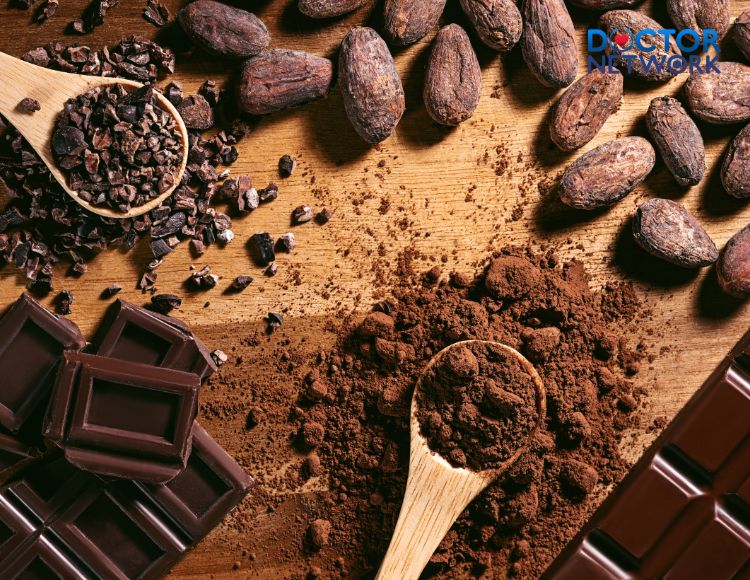How can foods affect breast milk supply? Breastfeeding is crucial to infant nutrition, providing essential nutrients and antibodies for optimal growth and development. Many nursing mothers wonder about the impact of their diet on milk production and quality. This comprehensive guide explores the intricate relationship between maternal nutrition and breast milk supply, offering evidence-based insights and practical advice for lactating women.
In this article, we’ll delve into the physiological mechanisms of milk production, examine common dietary concerns, and provide strategies for maintaining a healthy breastfeeding diet. We’ll also address prevalent myths and misconceptions, ensuring that nursing mothers have access to accurate, up-to-date information to support their breastfeeding journey.
Understanding Breast Milk Production
The production of breast milk, also known as lactation, is a complex physiological process governed by hormones and influenced by various factors.

The production of breast milk, also known as lactation, is a complex physiological process governed by hormones and influenced by various factors
The Role of Hormones (Prolactin and Oxytocin)
Prolactin and oxytocin are the primary hormones responsible for milk production and release. Prolactin stimulates milk synthesis in the alveoli of the mammary glands, while oxytocin triggers the let-down reflex, causing milk to flow from the alveoli to the nipple.
Factors Influencing Milk Supply
Several factors can affect a mother’s milk supply:
Individual Variation
Every woman’s body responds differently to breastfeeding, and milk production can vary significantly among individuals.
Stress and Sleep
High stress levels and sleep deprivation can negatively impact milk production by interfering with hormone balance.
Frequency and Duration of Breastfeeding
Regular, frequent nursing or pumping sessions are crucial for maintaining and increasing milk supply. The principle of supply and demand applies to breast milk production.
Nipple Confusion
Introducing bottles or pacifiers too early may lead to nipple confusion, potentially affecting a baby’s ability to latch correctly and stimulate milk production effectively.
Examining the Impact of Dietary Choices
While a mother’s diet plays a role in the quality of breast milk, its impact on milk supply is often overestimated.
The Importance of a Balanced Diet
A well-balanced diet ensures that nursing mothers receive adequate nutrients to support their own health and provide high-quality breast milk for their infants.
Hydration: A Crucial Element
Proper hydration is essential for maintaining milk supply. While there’s no need to force excessive fluid intake, mothers should drink to thirst and ensure they’re well-hydrated.
Understanding the “Food Affects Milk Supply” Claim
The Scientific Evidence
Research on the direct impact of specific foods on milk supply is limited. Most studies focus on the overall nutritional status of the mother rather than individual food items.
The Connection Between Diet and Milk Composition
While diet may not significantly affect milk volume, it can influence the composition of breast milk, particularly in terms of fatty acid content and certain micronutrients.
Common Food and Beverage Concerns
Many nursing mothers have questions about the safety and impact of certain foods and beverages on their breast milk.
Caffeine: Impact and Recommended Intake
Moderate caffeine consumption (up to 300 mg per day) is generally considered safe for breastfeeding mothers. However, some infants may be more sensitive to caffeine than others.

Moderate caffeine consumption (up to 300 mg per day) is generally considered safe for breastfeeding mothers
Impact on Baby
Excessive caffeine intake may lead to irritability, poor sleep patterns, and fussiness in some infants. Mothers should monitor their baby’s reaction and adjust their caffeine intake accordingly.
Alcohol: Effects on Milk Production and Baby’s Health
Alcohol can temporarily decrease milk production and alter the taste of breast milk. It’s best to avoid alcohol while breastfeeding, but if consumed, follow safe consumption guidelines.
Safe Consumption Guidelines
| Guideline | Description |
|---|---|
| Timing | Wait at least 2-3 hours per drink before nursing |
| Limit | No more than 1 standard drink per day |
| Pumping | “Pump and dump” is not necessary; alcohol leaves milk as it leaves the bloodstream |
Herbs and Spices: A Complex Relationship
Some herbs are believed to affect milk supply, either positively or negatively. However, scientific evidence is limited, and effects can vary among individuals.
Common Herbs and Their Potential Effects
- Galactagogues (may increase supply): Fenugreek, blessed thistle, fennel
- Herbs to use with caution: Sage, peppermint, parsley (in large amounts)
Seeking Professional Guidance
Always consult with a healthcare provider before using herbal supplements while breastfeeding.
Addressing Specific Food Groups
Foods High in Saturated Fat and Cholesterol
While these foods don’t directly affect milk supply, they may impact overall health and should be consumed in moderation.
Cruciferous Vegetables and Their Potential Effects
Cruciferous vegetables like broccoli and cauliflower are nutritious but may cause gas in some babies. If you notice increased fussiness, try eliminating these foods temporarily.
Dairy Products: Myth vs. Reality
Contrary to popular belief, consuming dairy products doesn’t increase milk supply. However, they’re an excellent source of calcium for nursing mothers.
Spicy Foods: Impact on Baby’s Sensitivity
Spicy foods don’t affect milk supply but may change the flavor of breast milk. Most babies tolerate these flavor changes well, but some may become fussy.
Creating a Breastfeeding-Friendly Diet
A balanced, nutritious diet is key to supporting both maternal health and breast milk quality.
Essential Nutrients for Breastfeeding Mothers
Vitamins and Minerals
| Nutrient | Importance | Food Sources |
|---|---|---|
| Calcium | Bone health | Dairy, leafy greens, fortified foods |
| Iron | Energy, prevent anemia | Lean meats, beans, fortified cereals |
| Vitamin D | Bone health, immune function | Fatty fish, egg yolks, sunlight exposure |
| Folate | Cell growth, prevent birth defects | Leafy greens, citrus fruits, beans |
Macronutrients (Protein, Carbohydrates, Fat)
- Protein: Essential for tissue repair and growth
- Carbohydrates: Primary energy source
- Fat: Crucial for hormone production and nutrient absorption
Identifying Individual Sensitivities
Keep a food diary to track any potential correlations between your diet and your baby’s behavior or digestive symptoms.
Tips for Meal Planning and Food Preparation
- Prepare nutrient-dense snacks in advance
- Incorporate a variety of fruits and vegetables
- Choose whole grains over refined carbohydrates
- Include lean proteins in each meal
- Stay hydrated with water, milk, and nutrient-rich beverages
Seeking Professional Guidance
Consulting with a Lactation Consultant
A certified lactation consultant can provide personalized advice on breastfeeding techniques and milk supply concerns.

Consultant can provide personalized advice on breastfeeding techniques and milk supply concerns
Engaging a Registered Dietitian
A registered dietitian specializing in prenatal and postnatal nutrition can help create a tailored meal plan to support breastfeeding.
Importance of Personalized Advice
Every mother-baby pair is unique, and what works for one may not work for another. Personalized guidance ensures the best possible support for your breastfeeding journey.
Resources and Further Reading
Credible Websites and Organizations
- La Leche League International (www.llli.org)
- American Academy of Pediatrics (www.aap.org)
- World Health Organization (www.who.int)
Relevant Journal Articles and Research Studies
- “Maternal Nutrition and Breastfeeding” – American Journal of Clinical Nutrition
- “The Impact of Maternal Diet on Breast Milk Composition” – Pediatric Clinics of North America
Frequently Asked Questions
- Can certain foods increase my milk supply? While no specific foods are proven to increase milk supply, maintaining a balanced diet and staying hydrated can support optimal milk production.
- Is it safe to diet while breastfeeding? Moderate, gradual weight loss is generally safe while breastfeeding. Avoid crash diets or extreme calorie restriction, as this can affect milk supply and quality.
- Should I avoid allergens in my diet to prevent allergies in my baby? Current research doesn’t support avoiding potential allergens during breastfeeding. In fact, early exposure through breast milk may help reduce the risk of allergies.
- How long should I wait after drinking alcohol to breastfeed? As a general rule, wait 2-3 hours per standard drink before nursing. If you’re unsure, it’s best to pump and store milk before consuming alcohol.
- Can I take herbal supplements to boost my milk supply? Some herbs may help increase milk supply, but always consult with a healthcare provider before taking any supplements while breastfeeding.
Scientific research
- Maternal Dietary Composition Affects Breast Milk Fatty Acid Composition” by Innis SM, published in the American Journal of Clinical Nutrition (2000).
- “The Effect of Maternal Diet on the Composition of Human Milk” by Bravi F, et al., published in Nutrients (2016).
- “Impact of Maternal Diet on Human Milk Composition and Neurological Development of Infants” by Keikha M, et al., published in Iranian Journal of Nursing and Midwifery Research (2017).
- “Effect of Food Restriction on Milk Production in Rats” by Bautista CJ, et al., published in Physiology & Behavior (2008).
- “The Impact of Maternal Nutrition on Breast Milk Composition” by Ballard O and Morrow AL, published in Annual Review of Nutrition (2013).
Loss of milk is a serious problem, but it can be prevented and overcome. By understanding the foods that cause loss of milk and maintaining a scientific diet, mothers can ensure an abundant milk supply for their children. Remember, every body is different, so it is important to listen to your body and consult a specialist to find the most suitable method.
References:
https://www.vinmec.com/eng/article/foods-that-can-make-you-lose-milk-en
https://www.vinmec.com/eng/article/which-vegetables-eat-to-lose-milk-en
https://www.hopkinsmedicine.org/health/wellness-and-prevention/5-breastfeeding-diet-myths
Kiểm Duyệt Nội Dung
More than 10 years of marketing communications experience in the medical and health field.
Successfully deployed marketing communication activities, content development and social networking channels for hospital partners, clinics, doctors and medical professionals across the country.
More than 6 years of experience in organizing and producing leading prestigious medical programs in Vietnam, in collaboration with Ho Chi Minh City Television (HTV). Typical programs include Nhật Ký Blouse Trắng, Bác Sĩ Nói Gì, Alo Bác Sĩ Nghe, Nhật Ký Hạnh Phúc, Vui Khỏe Cùng Con, Bác Sỹ Mẹ, v.v.
Comprehensive cooperation with hundreds of hospitals and clinics, thousands of doctors and medical experts to join hands in building a medical content and service platform on the Doctor Network application.

























